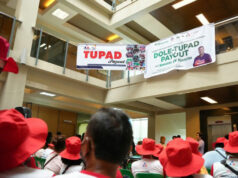
THE Management Association of the Philippines (MAP) on Monday warned that a House of Representatives-approved bill mandating a P200 daily minimum wage hike could put pressure on inflation and threaten the viability of small enterprises, urging lawmakers to revisit the measure before it advances further.
The organization said that while it supports efforts to uplift low-income workers, the pay bump passed by the House last week risks undermining business sustainability, particularly for small and medium-sized enterprises.
“The core issue isn’t low wages, but high living costs,” the group said in a statement. “We believe that attention should be given to the wage-to-cost ratio, not just wages.”
MAP called on the bicameral conference committee to conduct broader consultations with employers, workers, and government agencies and to consider its implications for inflation and the wider economy.
The group also pointed out that the Philippines already has one of the highest minimum wages in Asia, alongside steep prices for essentials like food, electricity, transportation, and housing.
Rather than relying solely on wage hikes, MAP urged policymakers to focus on lowering basic commodity costs and addressing inefficiencies in key sectors.
The group also encouraged employers to voluntarily offer support measures such as covering employees’ social contributions and profit-sharing arrangements.
A bicameral panel will need to reconcile differences between the two chambers before any legislation can be enacted. The Senate proposed a P100 wage increase in its counterpart bill, approved in February last year.
The daily minimum pay for nonfarm workers in the capital region is P645, the highest in the entire country. While the lowest is at the Bangsamoro Autonomous Region in Muslim Mindanao (BARMM) at P361.
The Philippines sets minimum wages regionally through wage boards, but lawmakers argue the system delivers slow and meager increases that fail to keep up with rising costs.
Inflation cooled to an over five-year low of 1.3% in May, bringing the five-month average to 1.9%. This is below the central bank’s 2-4% target band. — Chloe Mari A. Hufana



